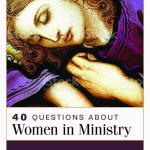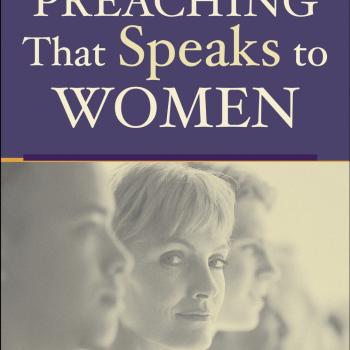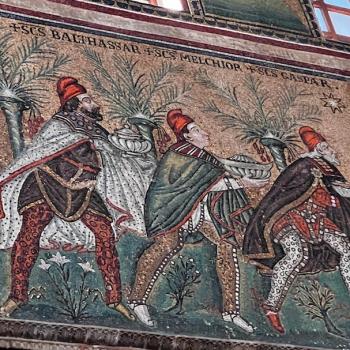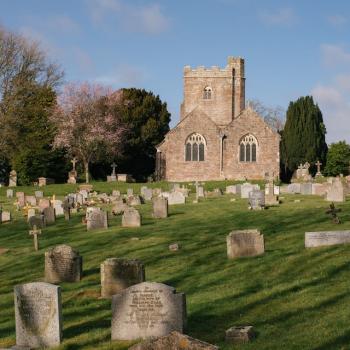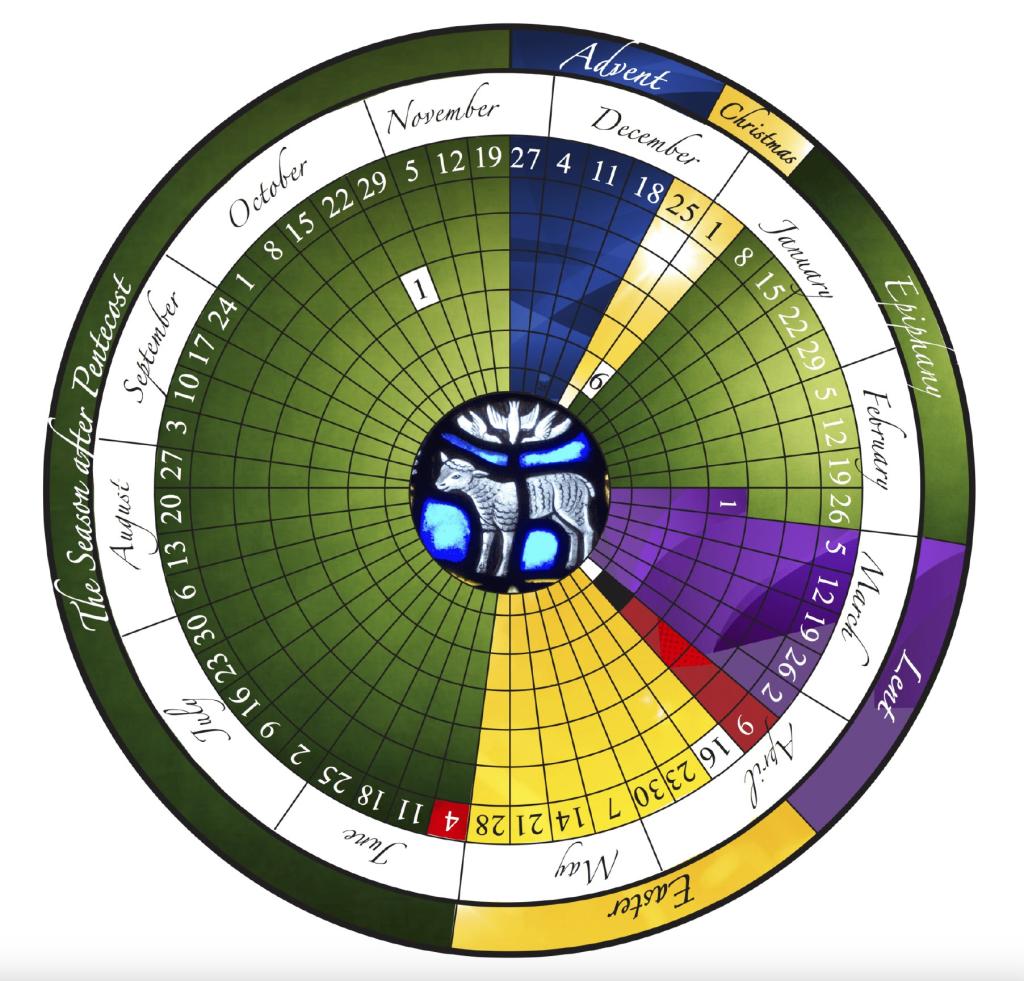 I’ve been a practicing Protestant in the Baptist tradition all my adult life, but when the big liturgical seasons like Lent and Advent come around each year, my Catholic upbringing preens a little. I had a front-row seat to the liturgical traditions practiced by Orthodox, Catholic, Anglican, Episcopalian, and several other mainline denominations within the worldwide Christian church. Evangelicals are generally not included in that group, though in recent years some “low-church” denominations have begun introducing annual traditions to their members. Advent has become quite popular, and Lent—which starts this week—also has enjoyed resurgent attention.
I’ve been a practicing Protestant in the Baptist tradition all my adult life, but when the big liturgical seasons like Lent and Advent come around each year, my Catholic upbringing preens a little. I had a front-row seat to the liturgical traditions practiced by Orthodox, Catholic, Anglican, Episcopalian, and several other mainline denominations within the worldwide Christian church. Evangelicals are generally not included in that group, though in recent years some “low-church” denominations have begun introducing annual traditions to their members. Advent has become quite popular, and Lent—which starts this week—also has enjoyed resurgent attention.
What is Lent?
Lent is a period of spiritual preparation for Easter among many Christians worldwide. It lasts for forty-six days (six weeks plus Sundays) and is typically observed with solemnity and self-reflection to ready Christians to commemorate Jesus’s death and resurrection. The season is marked by fasting and abstinence, in imitation of Jesus’s fasting in the wilderness before he began his public ministry.
Although Advent is a time of celebration and eager anticipation, Lent calls for us to ready our minds and hearts to remember the life, death, and resurrection of Jesus. Participating in Lent helps us put Easter in its proper perspective. Without reflecting on our own mortality, confessing our sin, acknowledging our hopeless estate without Christ, it’s easy to just let life go by and Easter become an extra exuberant church service. We become numb to its life-changing significance. The activities traditionally associated with Lent were never meant to be mandatory or an attempt to earn forgiveness. Rather, they are to be self-motivated exercises to put our hearts in a right posture of humility and gratitude for Christ’s sacrifice. No guilt, all grace.
When Did Lent Become a Thing?
Fasting was observed before the Easter festival since apostolic times, but the practice was not formalized until the First Council of Nicaea in 325 CE. In the first three centuries, churches stretched from North Africa to Rome and beyond. Religious practices varied across the distances between cultures and times. It took a few centuries for centralization to happen, and the Councils helped organize and regulate church-wide traditions such as Lent.
Forty-day fasts were common in the early church, at various times of the year for various reasons. Forty is a common number in the Bible (Genesis 7:4, 50:3; Exodus 16:35, 34:28; Deuteronomy 9:9; 1 Kings 19:7-8), and Jesus’s forty-day fast after his baptism (Matthew 4:1–11) provided the most prevalent example to follow.
Give Me All the Details
Ash Wednesday:
The date of Lent varies each year. Lent always begins on a Wednesday forty-six days (forty days of fasting and six Sundays) prior to Easter Sunday. That day is called Ash Wednesday, and in 2024 it happens to fall on Valentine’s Day! So scour your closet for an outfit that will match your ashy forehead �. The ashes given out at services come from the burned palm leaves used in the previous year’s Palm Sunday celebrations (not the ashes of humans, as some children thought!). Church leaders will make a cross on individuals’ foreheads, symbolizing the commencement of their Lenten fast. During the cross-marking ceremony, a recitation of the phrases “Repent and believe in the Gospel” (Mark 1:15) or “Remember that you are dust, and to dust you shall return” (Genesis 3:19) is often spoken.

Feast Before Fasting:
The day before Lent is called Mardi Gras or Shrove Tuesday. In years past, those who observed Lent by fasting would rid their homes of any items they were giving up for the next forty days, such as meat, fish, eggs, fats, milk, and sugar. Such ingredients also happened to create pancake batter, which is why Shrove Tuesday in the UK is now associated with pancake dinners. In France the pre-Lent overindulgence is called “Mardi Gras” (“Fat Tuesday” in French), a tradition that has made its way to Latin America and to Louisiana, where I grew up enjoying an extra week off school so we could celebrate with parades, king cakes, and parties.

Ash Wednesday and Good Friday have remained “holy days” on which Christians fast from meals or certain kinds of foods, which differ from culture to culture.
Why fasting?
The purpose of Lent is for believers to reflect on their own mortality, sin, and need for saving. Fasting is a spiritual discipline that is best done in community, where we can help one another stay accountable and encouraged. By abstaining from something meaningful, we make space for God to speak to us. If we skip lunch, let’s pray, journal, and/or read Scripture instead. Take a walk in nature, send an encouraging note to someone, or attend a church service. You can choose whatever activity is most meaningful to you.
In the spirit of repentance, consider meditating and/or memorizing Scriptures like Psalm 51, in which David confessed his sin against Bathsheba:
Wash me thoroughly from my iniquity and cleanse me from my sin.
For I know my transgressions, and my sin is ever before me.
Against You, You only, I have sinned and done what is evil in Your sight …
Restore to me the joy of Your salvation. (Psalm 51:2-4, 12)
Other spiritual disciplines include using Lectio Davina to regulate your prayer, meditation, reading, and confession. Adopt a Lent devotional for the season, with short daily readings. Read ancient prayers and let the words of those who’ve gone before you speak to your heart in a new way. Choose a Bible book to focus on for the entire season. Find a place to serve weekly. Donate more purposely and generously. The possibilities are endless.
Bottom line: Let Lent give you the space to reflect on your own need for a Savior. Come clean, deal with hard things, and emerge with joy and hope in Christ as you experience the victory of the resurrection!

